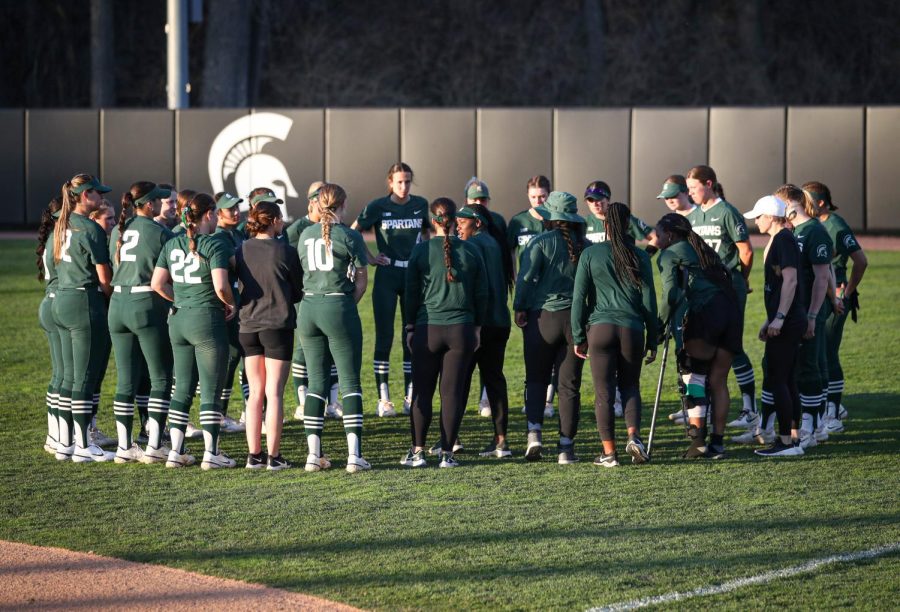Although NASCAR has the shortest offseason in sports, they also tend to have very short memories. So just if you forgot over those cold, December and January months who the greatest stock car driver of all time is, let me refresh your memory.
It’s not Richard Petty and it’s not Dale Earnhardt. It’s Jimmie Johnson.
That’s right, the driver who has amassed 80 wins in 543 starts, 218 top fives, 330 top tens, led over 18,000 laps, won 35 poles and a record-tying seven championships in his 14-year career. At 41-years old, Johnson became the youngest driver to get to seven titles in NASCAR history. He’s the G.O.A.T. and it’s not even a debate at this point.
He shows up for the big events, too. Johnson has won the Daytona 500 twice, the Brickyard 400 four times, the Coca-Cola 600 four times and the Southern 500 once. He also has four wins in the All-Star Race, all coming at Charlotte Motor Speedway. He also holds the all-time record for wins at Dover International Speedway with 10 (and counting).
Do the math: Johnson wins every seven races he enters. That is just absurdity. His five consecutive championships were a feat that will undoubtedly never be replicated again. He won six in eight years, and earned No. 7 in Hendrick Motorsports’ worst season in recent memory, where he was the only car to roll into victory lane throughout the entire season.
Don’t believe me yet? Hear me out, and consider the following:
He forced NASCAR to change their playoff format – twice: Yes, you read that right. After Matt Kenseth won the 2003 title after only winning one race, NASCAR implemented “The Chase.” Johnson’s first title in the Chase era came in 2006, and he didn’t stop winning until 2010.
Yes. Five. In. A. Row. He was so dominant that he forced NASCAR to change the points system (to have them awarded on a 40-1 scale), and then an even bigger change: eliminations. By instituting this radical change, the sanctioning body thought it would create a more unpredictable champion, rather than a 36-race season dominated by one driver, like Johnson did in the 2000s. But Johnson won anyway. Once in 2013 and the most recent in 2016. Bottom line: the dude was so good that the sport was forced to change the way it worked to try stop him from winning all the time … and it didn’t even work.
But let’s not give Johnson all the credit: The No. 48 team and Hendrick Motorsports are also pretty good—okay, REALLY good. Johnson has won all seven titles with crew chief Chad Knaus, who will also go down as one of if not the best crew chief in the history of the sport. Car chief Ron Malec has been along for the ride as well, and Jeff Gordon, who told Rick Hendrick to take a chance on a young and unproven Johnson in 2002, all were deciding factors in getting JJ to where he is now.
Knaus has been known to push the boundaries of NASCAR’s rule book so far as to be accused of cheating weekly. But more times than not, he gets away with whatever he’s doing, because he finds a loophole somehow. And that loophole usually leads to the No. 48 running up front, dominating races and winning.
He exemplifies resiliency: How many times have we been watching a race and all of a sudden, that No. 48 Lowe’s Chevrolet comes out of nowhere to finish in the top five or win? Kevin Harvick might be nicknamed Mr. “Where Did He Come From?”, but Johnson’s nickname should be Mr. “How Did He Do That?” Whether it’s a flat tire, a faulty transmission, a crushed quarter panel, a pit road penalty, or anything in between, Johnson, Knaus and co. find a way to defy the odds and end up making a good day out of one that seemingly looked bleak.
He accomplished this in the most competitive era in NASCAR history: I didn’t get to see “The King” or “The Intimidator” race. I wish I did, but I didn’t. But I have been able to see old race tapes and highlights of the dominance of the famed No. 43 and No. 3. Petty’s 200 wins will never be matched (you can quote me on that). And Earnhardt transcended the sport. But let’s take a deeper look as to why Johnson’s career statistics are more impressive.
In Petty’s era, the premier series would typically have upwards of 60 races per season with only five to seven teams capable of winning week in and week out. That’s how Petty won so many races (200 in 1,185 starts). There’s no denying his greatness, but there is denying the competitiveness on the race track of his era. In Earnhardt’s era, the competition was heightened from Petty’s, but still not what it is today. I understand it is difficult to compare eras, and almost impossible. But Jimmie Johnson’s era has been the toughest by far.
Every week when the Monster Energy NASCAR Cup Series rolls into the garage area, there are realistically 10-15 teams that can win any given weekend. That’s more than Petty’s era, and that’s more than Earnhardt’s era. And JJ has won just as many ‘ships as the other arguable G.O.A.T.’s. But there’s one difference: he isn’t done yet.
Johnson realistically has at least five more seasons of his prime to go, A.K.A. five more chances to win an unprecedented eighth championship. Personally, I think it’s a matter of when, not if, when it comes to him getting to No. 8. And he’s ready.
“I mean, let’s go!” he said in the media center at Homestead-Miami Speedway after winning No. 7. “I’m so excited to put [winning eight] in front of myself (and) the team as a hurdle to get over and achieve. This one only gives me only more confidence for the future. … I think it makes us really dangerous, and I look forward to the challenge of getting No. 8.”



































